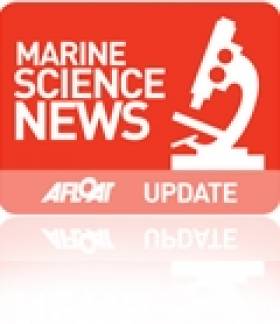Displaying items by tag: Research Vessels
The Stagiaire position is an excellent training opportunity for a recent graduate. The position will be based in Galway. For further information on description of the position, duration of contract and how to apply click HERE and note that the closing date is 12 noon on Friday 5th August 2011.
- Marine Institute
- marine science
- Research Vessels
- RV
- Marine Science News
- Marine Institute vacancies
- Marine vacancies
- Irish marine vacancies
- Irish marine careers
- Marine Institute Stagiaire Programme
- Marine Institute Oranmore
- Irish marine science news
- RV operations
- Jobs and Careers
- Irish marine jobs and careers
- Jobs and careers news
Irish to Lead Europe in Research Vessel Productivity
These figures compare favourably with our European counterparts, reflecting a high level of activity on national and international research and monitoring programmes.
Work duties in 2011 for the Galway based vessels will range from fisheries surveys to underwater mapping and from climate studies to deepwater surveys with the remotely operated submersible ROV Holland 1. The work schedule will facilitate training missions and to carry out essential maintenance work on Ireland's network of data buoys that, in parallel to their research function, supply the vital information on which weather and shipping forecasts are based.
The increased activity of the research vessels reflects the growing imperative to understand and sustainably manage the economic potential of our offshore marine territories, an area over ten times that of Ireland itself.
A major role of the ships' workload will be commercial fish stock assessments. Together they are to devote 141 days on stock surveys in support of the sustainable management of Ireland's fisheries.
The RV Celtic Voyager will conduct underwater television surveys of valuable prawn stocks off the Aran Islands, the Irish and Celtic Seas, working on blue whiting, a survey of herring stocks in the north-west. In addition a comprehensive 54-day annual Irish Groundfish Survey which will take place in stages all around the Irish coast from September to December.
The survey will be the largest undertaken by an Irish research vessel and is essential to providing the scientific data used to inform the annual quota negotiations required in Brussels each year.
For the 2011 schedule for both vessels is available to view by clicking HERE and the Maritime Institute website click this link.
At 65.5m RV Celtic Explorer (2,425grt) accommodates 35 personnel and up to 21 scientists and 31.4m RV Celtic Voyager (340grt) with up to 8 scientists and a maximum endurance of 14-day days. For detailed technical specifications of the Dutch built vessels, RV Celtic Explorer, click here to download a PDF file and for the RV Celtic Voyager click here
For further information contact: Dr John Joyce, Communications Manager of Marine Institute on 087 2250871

























































